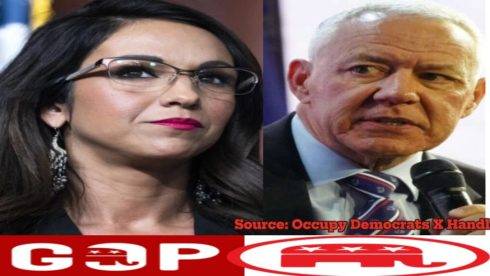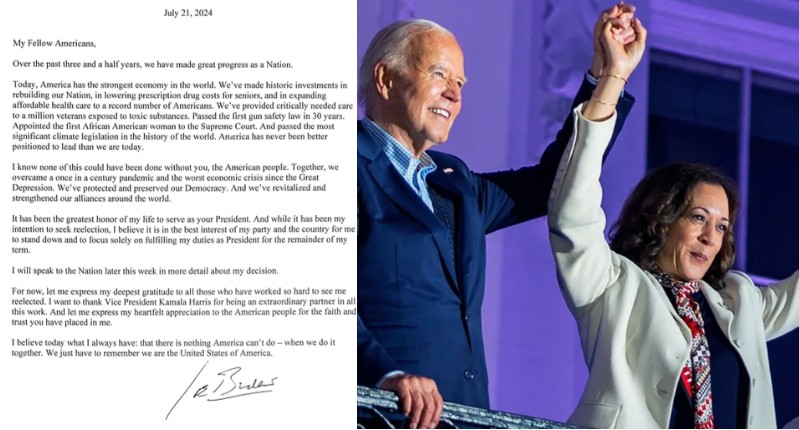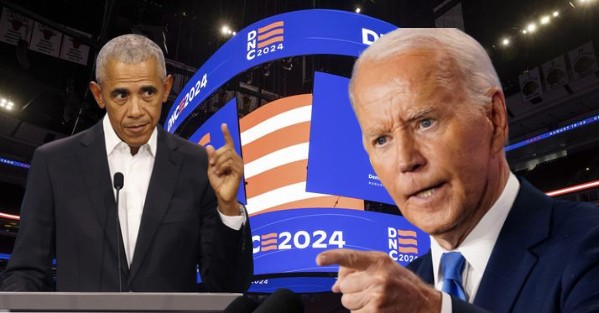Congressman Ken Buck’s decision to retire from his seat has left the Republican Party reeling, especially among ardent supporters of former President Trump, such as Congresswoman Lauren Boebert. Buck’s unexpected announcement has caught many within the GOP off guard, disrupting their meticulously crafted plans for the impending elections. With Buck’s departure, the party finds itself in a state of disarray, frantically scrambling to devise new strategies to fill the void left by his absence and to maintain their political stronghold in the face of mounting uncertainty.
Amidst the shockwaves reverberating through Republican ranks, Buck’s sudden retirement underscores the volatile nature of contemporary American politics. As speculation swirls regarding his motivations for stepping down, the GOP is forced to confront the reality of navigating an increasingly unpredictable landscape. With the specter of Buck’s departure looming large, party leaders and strategists find themselves confronted with the urgent task of adapting to this unforeseen development, lest they risk being caught off guard by further unexpected twists and turns in the lead-up to the elections.
Congresswoman Lauren Boebert’s Reaction to Buck’s Retirement Reveals Republican Factionalism
Congresswoman Lauren Boebert’s impassioned response to Representative Buck’s retirement announcement has laid bare the simmering tensions within the Republican Party. Lauren Boebert’s vehement reaction serves as a poignant illustration of the deep ideological divides plaguing the GOP. Her accusatory tone and allegations of clandestine agreements hint at a pervasive sense of disenchantment among the party’s conservative wings, who feel marginalized by what they perceive as the dominance of establishment figures. This rift underscores the challenges facing the Republican Party as it grapples with internal discord while striving to present a united front to the electorate.
Boebert’s outspokenness reflects a broader sentiment of frustration and disillusionment among conservative factions, who believe their voices are being drowned out by more moderate elements within the party. The clash between Boebert’s confrontational approach and the perceived establishment leadership highlights the ongoing struggle for control of the Republican agenda. As the GOP navigates these internal power struggles, it faces the daunting task of balancing the demands of its diverse constituencies while maintaining cohesion ahead of upcoming elections. The dynamics at play within the party not only shape its internal dynamics but also have far-reaching implications for its ability to effectively govern and compete in the political arena.
Controversy Erupts Over Special Election Timing Between Lauren Boebert and Buck
The decision to schedule a special election concurrently with the primary has sparked a heated debate, particularly fueled by Representative Boebert’s vehement opposition, alleging it as a deliberate maneuver to undercut her campaign. Boebert’s vocal dissent has intensified concerns regarding potential voter confusion and the prospect of an extended period devoid of representation. This contentious move has ignited tensions within the political landscape, amplifying an already volatile atmosphere.
As the discourse surrounding the decision to align a special election with the primary gains momentum, apprehensions regarding its implications continue to mount. The prospect of prolonged uncertainty coupled with the potential for voter disenfranchisement looms large, raising questions about the integrity of the electoral process. With Boebert spearheading the resistance against what she perceives as a strategic maneuver, the political climate remains fraught with uncertainty and discord, underscoring the significance of transparent and accountable decision-making in navigating such contentious issues.
Lauren Boebert’s Dilemma: To Resign or Not to Resign?
Congresswoman Boebert’s dilemma epitomizes the intricate dance between personal ambition and party loyalty. As she grapples with the allure of higher office, she is acutely aware of the potential consequences her decision may have on the cohesion of the Republican majority. By choosing to resist calls for resignation and opting to participate in the special election, Boebert underscores the complexity of her political tightrope walk, where every step she takes must be calculated to maintain her standing within the party while also appeasing her constituents.
In this volatile landscape of intra-party dynamics, Congresswoman Boebert’s strategic maneuvering reflects the intricate balancing act required to navigate the choppy waters of Capitol Hill. Her decision not only impacts her own political trajectory but also resonates with the broader dynamics shaping the Republican Party’s future. As she treads cautiously, mindful of the delicate balance between ambition and party unity, Boebert’s actions serve as a microcosm of the challenges facing modern politicians in an era defined by shifting allegiances and ideological polarization.
Navigating Political Crossroads: Lauren Dilemma and the GOP’s Future
Congresswoman Boebert finds herself at a pivotal juncture, carefully considering her next move as she contemplates the potential ramifications for her political trajectory and the broader Republican Party. With the looming possibility of a contentious battle against an incumbent in the upcoming general election, the spotlight intensifies on Boebert and her alignment with the MAGA movement. The decisions she makes in the coming days could shape not only her own fate but also influence the direction of the GOP, underscoring the high stakes involved in her deliberations.
As Boebert weighs her options, the political landscape brims with uncertainty, reflecting the profound implications of her choices. Amidst a backdrop of internal party tensions and external scrutiny, her decisions carry weight beyond mere personal ambition, resonating with the ideological currents coursing through the Republican Party. Whether she embraces a confrontational stance or opts for a more conciliatory approach will not only impact her own political fortunes but could also signal shifts within the broader conservative movement. In this moment of reckoning, Boebert’s actions could serve as a barometer for the future trajectory of the GOP, shaping the contours of American politics for years to come.
Congresswoman Lauren Political Dilemma
The political fate of Congresswoman Boebert hangs precariously in the balance amidst the aftermath of Buck’s retirement, casting a shadow of uncertainty over her once-promising career. With the spotlight firmly fixed on her, Boebert faces an arduous uphill battle to salvage her reputation and retain her foothold in Colorado’s 4th District and beyond. As the reverberations of Buck’s departure continue to ripple through the political landscape, Boebert finds herself at the epicenter of a tumultuous storm, where every move she makes will be scrutinized and analyzed by both supporters and detractors alike.
With all eyes trained on her, Congresswoman Boebert must deftly navigate the treacherous terrain of Colorado’s 4th District, where the political landscape is fraught with challenges and obstacles. As she strives to maintain her constituency’s trust and support, Boebert faces the daunting task of balancing the demands of her constituents with the expectations of her party leadership. Every decision she makes in the coming days will be critical, as she seeks to reassure voters and stakeholders of her ability to lead effectively in this pivotal moment. Boebert’s political acumen and resilience will be put to the test as she endeavors to chart a course forward amidst the uncertainty and turbulence of Buck’s unexpected departure.
Table of Contents
Discover more from OGM News NG
Subscribe to get the latest posts sent to your email.














